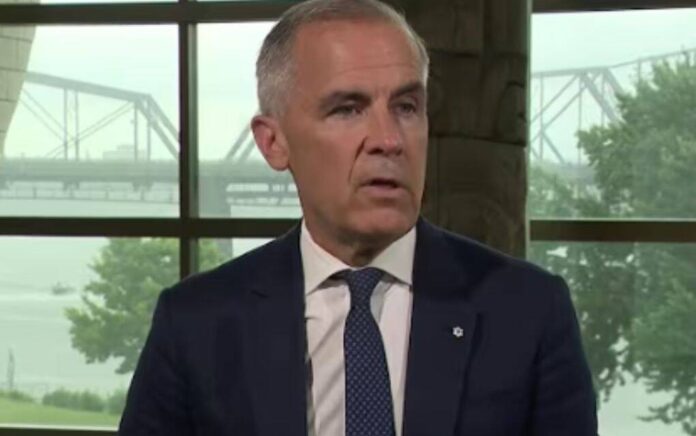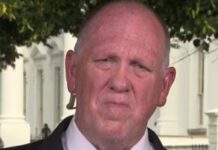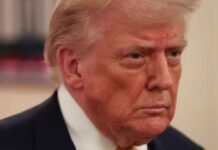
Trump’s tough leadership is making waves. He’s not afraid to back down from any fight.
And this foreign leader admits defeat is looming thanks to this strategy from Donald Trump.
Canada-US Trade Talks Face Uncertainty as Carney Signals Tariff Challenges
Canadian Prime Minister Mark Carney delivered a sobering message to reporters on Tuesday, hinting that even a finalized trade deal with the United States might not eliminate tariffs on Canadian goods. This admission, made just before a cabinet meeting to strategize on President Donald Trump’s latest trade proposal, suggests a tough road ahead in negotiations.
Trump’s plan threatens a 35 percent tariff increase on Canadian goods if Ottawa fails to address fentanyl trafficking and what Washington considers unfair trade practices.
Speaking to the Globe and Mail, Carney acknowledged the slim chances of securing a tariff-free agreement. “There is not much evidence at this moment of agreements, arrangements, or negotiations with the Americans for any country, any jurisdiction, to have a tariff-free deal,” he said, promising that talks with the U.S. would “intensify” as the August 1 deadline approaches.
According to the Globe and Mail, this marks a departure from his earlier reluctance to admit publicly that negotiations might not fully eliminate Trump’s tariffs, a key issue during his April election victory.
Carney emphasized urgent challenges in sectors like automobile steel, aluminum, and pharmaceuticals. “There are problems, obviously, in the automobile steel sector, aluminum, pharmaceuticals, and other areas that all need to be addressed. We need to stabilize the situation for Canada,” he said, urging Canadians to “recognize the commercial landscape globally has changed” since Trump’s second term began.
Last week, Trump heightened tensions with a letter on Truth Social addressed to Carney, extending the trade deal deadline to August 1 but expressing frustration with the slow progress. He warned that a 35 percent tariff on all Canadian goods “separate from sectoral tariffs” and further escalations would apply if Canada retaliates.
Trump highlighted issues beyond fentanyl, noting, “I must mention that the flow of Fentanyl is hardly the only challenge we have with Canada, which has many Tariff, and Non-Tariff, Policies and Trade Barriers, which cause unsustainable Trade Deficits against the United States.” He also criticized Canada’s up-to-400 percent tariffs on U.S. dairy farmers, which often restrict market access.
A finance expert with no prior political experience, Carney led a stunning Liberal Party comeback after Justin Trudeau’s resignation, erasing a 26 percent Conservative lead earlier this year.
His campaign framed Conservative Leader Pierre Poilievre as too conciliatory toward Trump, despite Trump’s public endorsement of Carney, calling Poilievre “stupid.” Carney warned that Poilievre would compromise too much in trade talks, positioning himself as a fierce defender of Canadian interests.
In March, Carney declared the traditional U.S.-Canada relationship “over,” advocating for a pivot away from American trade. “We will need to dramatically reduce our reliance on the United States,” he said. “We will need to pivot our trade relationships elsewhere… There will be no turning back.”
During the campaign, he promised strong countermeasures against Trump’s tariffs. On April 2, responding to tariff announcements targeting other trade partners, Carney vowed, “We are going to fight these tariffs with countermeasures. We are going to protect our workers and we are going to build the strongest economy in the G7.”
After defeating Poilievre, Carney’s rhetoric softened. In May, he visited the White House, praising Trump as a “transformational president” focused on the economy, border security, and fentanyl.
“I’ve been elected… with the help of my colleagues here, I’m going to spread the credit, to transform Canada with a similar focus on the economy, securing our borders, again, on fentanyl,” he said, also stressing Arctic defense and development.
At the June G7 summit he hosted, Carney commended Trump’s vision, stating, “Nostalgia isn’t a strategy. We have to change with the times and to build a better world, and some of you, such as you, Mr. President, have anticipated these massive changes and are taking bold measures to address them.”
Poilievre pounced on Carney’s recent comments, mocking his apparent failure to uphold his tough-on-Trump campaign promise. He called the looming tariffs “another unilateral concession from a man who said he would never back down to the U.S. president.”
With the August 1 deadline nearing, Carney faces mounting pressure to balance domestic expectations with the complex realities of negotiating with a hardline U.S. administration.
Stay tuned to The Federalist Wire.



















